Genetics
-
 Genetics
Genetics50 years ago, alcohol use was linked to several gene variants
50 years later, scientists are still searching for genes that influence drinking.
-
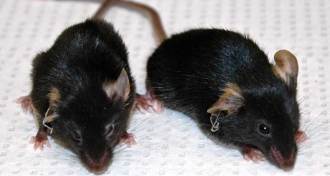 Genetics
GeneticsProteins that reprogram cells can turn back mice’s aging clock
Proteins that reprogram adult cells to an embryonic-like state can rejuvenate prematurely aging mice.
-
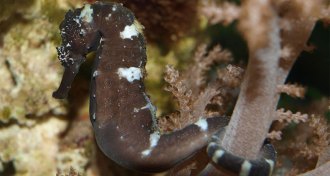 Animals
AnimalsGenome clues help explain the strange life of seahorses
Researchers have decoded the genetic instruction manual of a seahorse (Hippocampus comes) and found clues to its nearly 104-million-year evolutionary history.
-
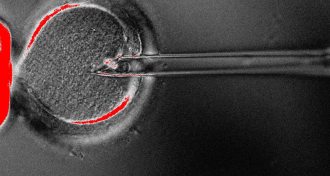 Genetics
GeneticsYear in review: ‘Three-parent baby’ technique raises hope and concern
Safety and ethical concerns surround controversial mitochondrial replacement therapy.
-
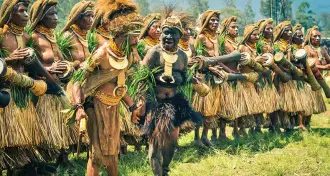 Genetics
GeneticsYear in review: How humans populated the globe
DNA studies put new twists on timing of ancient human migrations – but genetics alone are not enough to tell the full story.
By Bruce Bower -
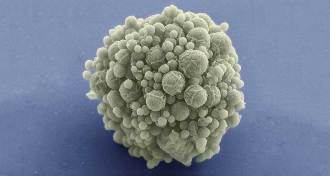 Life
LifeYear in review: ‘Minimal genome’ makes its debut
A synthetic cell reported this year jettisons unnecessary genes and embraces human design principles.
-
 Oceans
OceansReaders contemplate corals and more
Coral engineering, ancient almanacs and more in reader feedback.
-
 Genetics
GeneticsEpigenetic marks may help assess toxic exposure risk — someday
Exposure to things in the environment may change chemical tags on DNA and proteins, but it’s still unclear how to use that data to assess health risks.
-
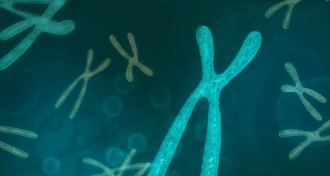 Life
LifeHaving an extra chromosome has a surprising effect on cancer
Extra chromosome copies may protect against, not cause, cancer.
-
 Plants
PlantsTweaking how plants manage a crisis boosts photosynthesis
Shortening plants’ recovery time after blasts of excessive light can boost crop growth.
By Susan Milius -
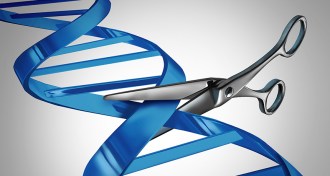 Health & Medicine
Health & MedicineChinese patient is first to be treated with CRISPR-edited cells
Researchers used CRISPR/Cas9 to engineer immune cells that were then injected into a patient with lung cancer, the journal Nature reports.
-
 Genetics
GeneticsCancer mutation patterns differ in smokers, nonsmokers
The DNA of smokers shows more damage than the DNA of nonsmokers who have the same kind of cancer.